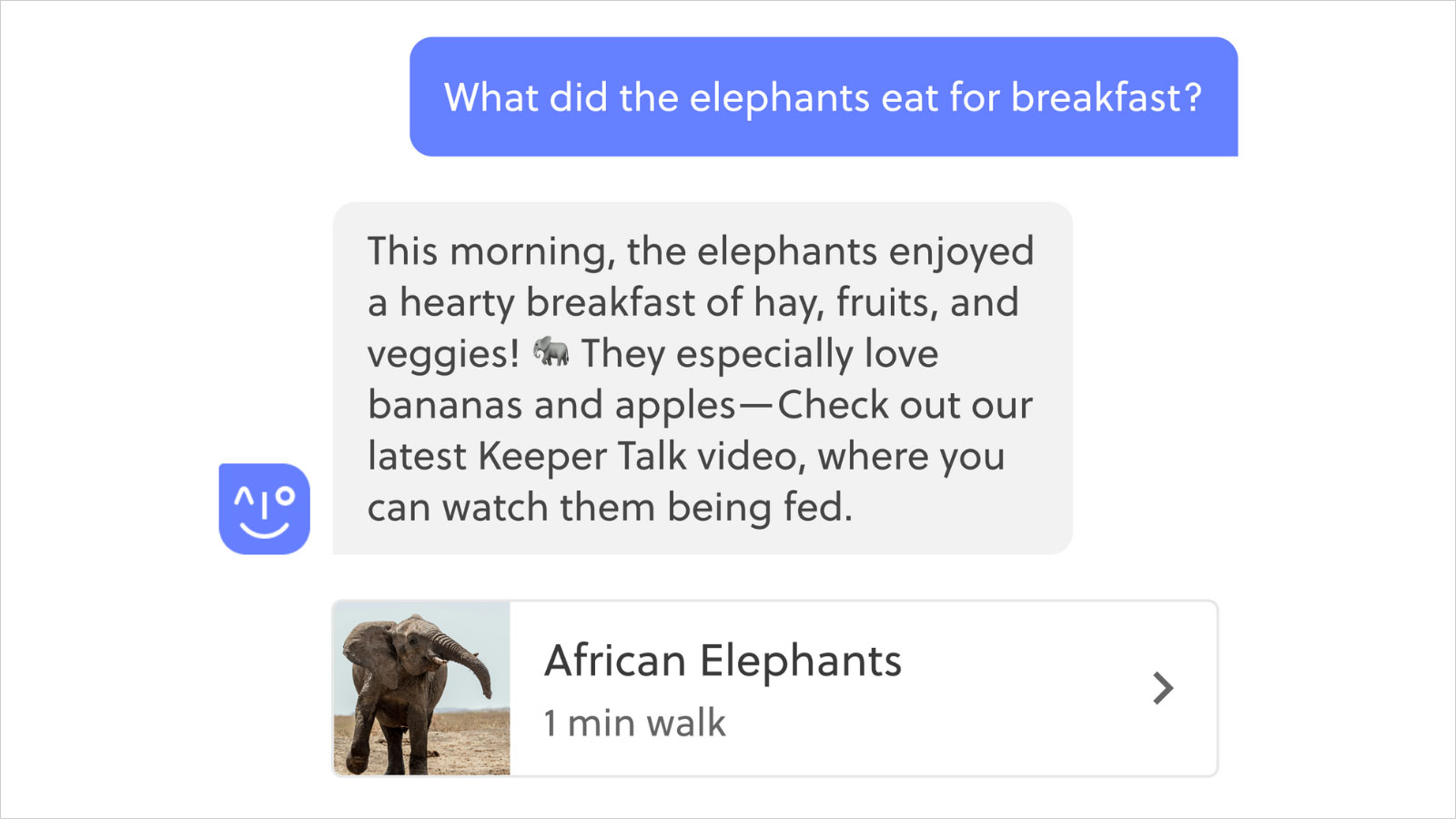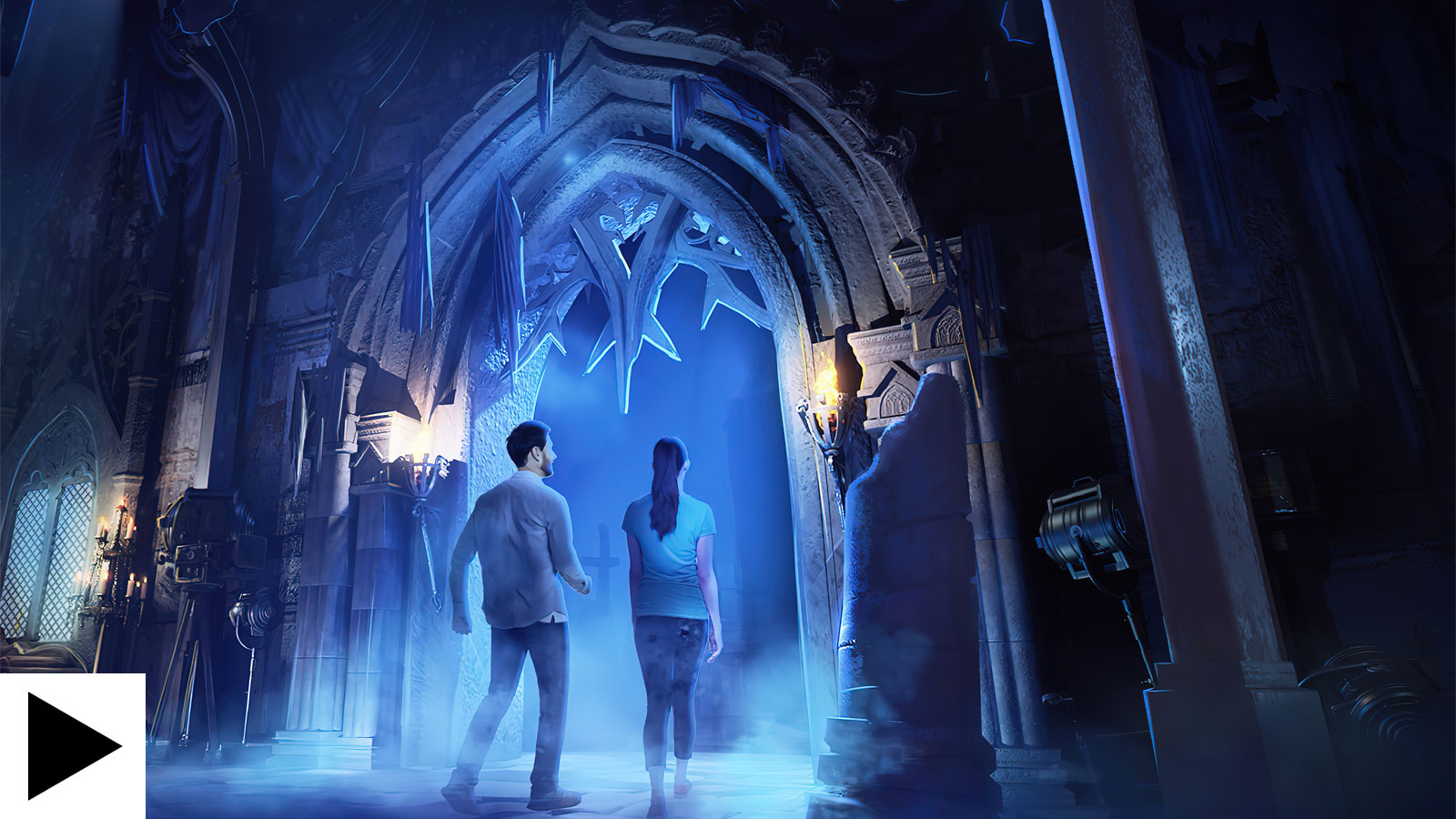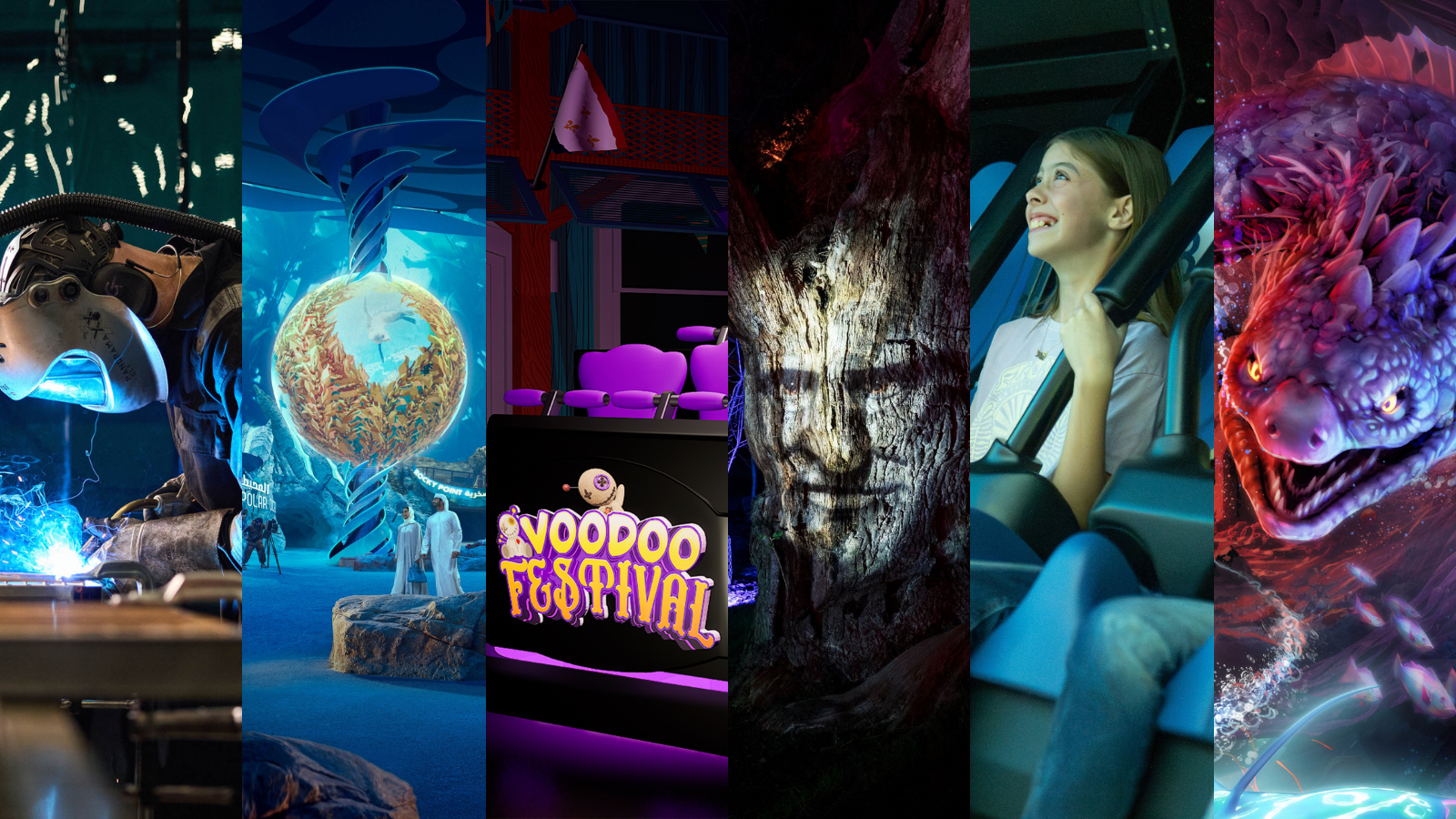|
Promising human-like interactions, real-time support, and personalised experiences for visitors, conversational AI is the new hot topic when it comes to visitor attractions. But with something so new and groundbreaking, there are always going to be sceptics. With its new AI Assistant launched at IAAPA Expo, Attractions.io’s Mark Locker and Peter O’Dare spoke to Planet Attractions about what AI truly has to offer the sector...

Tom Anstey | Planet Attractions | 09 Dec 2024

 Attractions.io is offering a solution created to transform guest engagement from transactional to relational Attractions.io is offering a solution created to transform guest engagement from transactional to relational
It’s fair to say that artificial intelligence is a hot topic right now.
For visitor attractions, when it comes to public-facing content, we’re on the cusp of a shift from rigid menus and static screens to fluid and lifelike conversational interfaces.
Visitors are looking for instant, intuitive answers without the friction of navigating traditional web and app platforms. Soon, attractions won’t just offer static maps or FAQs - they’ll begin providing guests with companions that tailor suggestions, simplify decisions, and adapt to personal preferences.
Leading the charge in this area of the attractions industry, Attractions.io is offering a solution created to transform guest engagement from transactional to relational.

The general public is already accustomed to a variety of seamless digital experiences - from streaming services like Netflix that know their favourite shows to shopping platforms such as Amazon that remember past purchases and suggest new cart items based on their preferences.
The world of attractions is no exception, with guests expecting personalised, efficient interactions that align with their specific needs. Recent research from Attractions.io revealed that nearly 30% of guests are interested in technologies that can personalise their visit and offer a unique experience when they return. A further 26% want to see technology used to introduce “surprise and delight” experiences during their visits.
Helping guests to make the most of their experience, conversational AI is set to become commonplace in the attractions industry and beyond - and probably sooner than you think.
“We’re seeing the groundwork being laid for a fundamental shift in how guests interact with technology,” says Mark Locker, CEO of Attractions.io.
“Guests already expect more than static interfaces - they want immediate, relevant information delivered naturally, and that's exactly what conversational AI can offer the industry.”
Exploring AI opportunities early doors offers operators embracing this shift early on a chance to not only enhance the guest experience but differentiate their brand while the rest of the pack plays catchup. For Attractions.io’s product team, this was the impetus that inspired AI Assistant - an intelligent, proactive guide for guests that seamlessly integrates with an operator's existing digital tools.
"A core principle guiding our work is to always begin with a clear understanding of the challenge we aim to solve, whether it’s reducing guest friction or improving operator efficiency,” says Locker. “Our focus has always been on addressing the issues that impact the guest experience. Now, AI is providing new ways to tackle some of these challenges, and that’s the lens through which we approach its application.”

The technology that powers conversational AI is advancing rapidly, with tools like ChatGPT and the recently launched Apple Intelligence paving the way for broader public acceptance.
For operators, the risk lies in underestimating the pace at which guests’ expectations are changing when it comes to AI-powered products. With major players like Apple and Google embedding AI across their products, the demand for intelligent, responsive interfaces is not far off from becoming a mainstream product in the attractions sector.
“Imagine a world where the guest experience is more dynamic and personalised to you. That’s what we think about when we look at AI,” says Locker. “I see the conversational AI Assistant as another member of your team who has been dynamically deployed. If you're a thrill seeker, for example, it will talk to you differently and provide different insights than it would for someone with kids.”
According to Attractions.io, taking a proactive approach to AI means operators can achieve three key goals - setting the standard for guest experiences, gaining operational advantages and avoiding playing catch-up.
Setting the standard, early adopters of AI can establish themselves as leaders in digital guest engagement, attracting tech-savvy audiences who value efficiency and personalisation.
When it comes to gaining operational advantages, conversational AI will be able to handle routine inquiries, which means staff can focus their attention on high-impact interactions that require the human touch, such as front-of-house customer service.
Finally, as AI moves more and more into the mainstream, playing catch up is a place attractions don’t want to be. To delay risks an attraction appearing outdated, potentially losing guests to competitors offering a smoother, more intuitive digital experience.
“We’re not adopting AI for AI’s sake; we’re focused on solving real operational challenges and enhancing the guest experience,” says Peter O’Dare, VP of product at Attractions.io. “Waiting on this evolution could mean missing out on a pivotal change in how our industry engages with visitors.”
The bottom line in O’Dare’s opinion? Conversational AI isn’t a distant vision; it’s an immediate priority that warrants exploration if nothing else.

Both Locker and O’Dare recognise that chat interfaces haven’t always been great. The first wave of chatbots relied on scripted responses and keyword-based recognition. These bots could handle FAQs and simple commands but could not adapt, learn, or personalise their responses. As a result, this often led to a frustrating experience for the user.
“There are cobwebs to blow off on the perception of chatbots,” says Locker. “Chatbots historically have been pretty bad in a lot of cases.
"We've all been in a situation where we are trying to get support online, and a chatbot pops up that's frustrating to deal with - you can’t reach a real person, and it keeps sending you in circles. When that happens, it's likely an older, rule-based bot, not one powered by modern LLM technology.”
LLM - large language model-systems - can understand human language and generate responses based on user input, as well as learn from customer input with machine learning and deep learning algorithms. This means they can significantly better understand user intent and create personalised, highly relevant answers for each user.
Attractions.io’s AI Assistant leverages this LLM technology, with the “truly intelligent” system creating a conversational experience that mimics human interaction. As a result, unlike basic chatbots, AI Assistant can offer real-time personalisation, adapting to individual guest preferences in real-time, and offering recommendations based on age, interests, and even dietary restrictions.
With data-driven interactions, through the integration of elements such as ticketing, wayfinding and dining, the AI can answer layered queries like “What’s the best ride for a five-year-old?” or “Where’s the nearest vegetarian restaurant?”
In addition, the LLM AI model benefits from continuous learning - the more it interacts, the better its responses become over time. This evolution, says Attractions.io, creates a lasting impact as the AI learns to anticipate needs rather than just respond to questions.
“These aren’t just standard scripted interactions,” explains Locker. “Our AI adapts to the guest’s context, drawing on data to create a seamless and genuinely helpful experience that feels like a human assistant.”

For operators, conversational AI is not only about enhancing guest experience but also about driving operational efficiency. By reducing the demand for guest services and handling complex inquiries, the technology allows staff to focus on the undeniably human elements of the guest experience.
Among the key benefits for operators, attractions will be able to upsell opportunities through natural interactions. AI Assistant, for example, can offer fast passes, dining reservations or other upgrades, using data to identify when a guest might value these options so as not to come up as a pushy tactic.
With AI managing information-based queries, guest services teams are free to focus on the emotional side of guest interactions. While AI can provide quick answers, only a human can create those magical, personal moments that make an experience unforgettable, like dressing up as Cinderella to bring a young guest's fantasy to life. By handling routine questions and logistics, AI allows staff to dedicate more time to meaningful, memorable experiences that elevate the guest journey.
With AI Assistant specifically designed for use in attractions, the technology can offer an on-brand, scalable service - one that mirrors the operator’s tone and values, ensuring a consistent, branded experience across all interactions.
“The way attractions have been staffed has been changing for a while,” says O’Dare. “Traditionally, mobile apps and other data sources producing real-time data help decisions to the point where operations staff are being cross-trained and multi-skilled.
“You might be making admissions at the start of the day, then go work in a food and beverage outlet or on a ride. That is where AI is going to help.
“An AI Assistant frees up staff to deliver more of the personal, memorable interactions that guests remember long after their visit while ensuring they still get quick, real-time information, tailored exactly to their needs.”

For a typical family visit to a theme park, an AI Assistant, says Attractions.io, offers a cohesive, connected journey. The AI understands the family’s preferences, making recommendations that feel personalised and intuitive.
This includes personalised planning, which can take place from the moment guests book their tickets. From this point, the AI Assistant can suggest relevant attractions, helping a family to make the most of their day, while also offering real-time navigation, be that to the nearest roller coaster or the nearest restroom. All of this can be done without the need to navigate a complex app menu, they simply need to ask the AI Assistant and it will provide them with the answer.
The AI will also help with in-park dining. When meal time approaches, it considers factors like dietary preferences, current location, and crowd patterns to recommend nearby options. For instance, a guest asking “Where can I find pizza?” would get a specific answer that takes into account menu options, proximity, and availability.

One of the most transformative aspects of conversational AI is its ability to learn and anticipate guest needs. Rather than simply answering questions, it can proactively guide guests based on past interactions and contextual data.
Among its abilities, such an AI can notify guests when a ride they expressed interest in has a short wait time. It can also help with dynamic scheduling, suggesting alternative activities when a guest’s favourite attraction is already at capacity, helping with the overall flow of the park. Along the same vein, it can make real-time adjustments, adapting suggestions based on current crowd levels or new guest preferences.
“Imagine an assistant that's not just reactive but helps shape your visit,” says Locker. “Our AI can surface helpful suggestions and bring everything from wait times to dining options into a single, cohesive flow, enhancing the journey without overwhelming the guest.”

With big tech companies already embedding conversational AI into everyday products, Google’s Gemini for example, guests’ expectations are evolving quickly. Within the next five to ten years the general public will become more and more familiar with conversational interfaces across all aspects of their daily lives.
For operators, this means the time to get curious about conversational AI is now, not only to meet these growing expectations but to redefine their guest experience ahead of the curve.
“Conversational AI will shape the future of guest interactions in our industry,” says O’Dare. “Those who take steps now will be the ones who set the standard.”
When it comes to AI, operators certainly don’t want to be jumping on for the sake of jumping on. But as the technology evolves and grows, and with tools like Attractions.io’s AI Assistant at their disposal, can they afford not to be part of what could possibly be one of the most significant technological leaps since the creation of the Internet?
To talk more with Attractions.io about its AI Assistant visit attractions.io/ai-assistant.
Technology
|
|






Supplier Showcase 2025: The biggest attractions projects landing worldwide this year
|